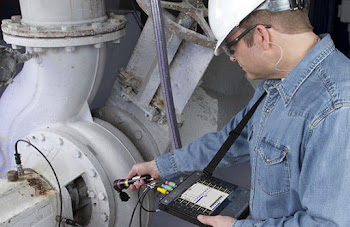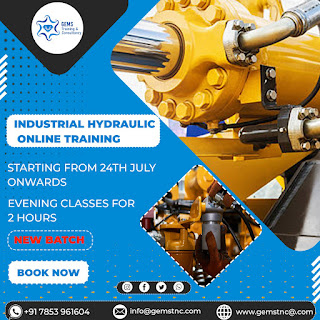Mastering the Power of Hydraulics: A Comprehensive Training Guide
Introduction:
Hydraulics is a fascinating field that
harnesses the power of fluid mechanics to generate force and transmit energy.
It plays a crucial role in various industries, including manufacturing,
construction, and transportation. Whether you're a hydraulic technician,
engineer, or simply interested in expanding your knowledge, a comprehensive
hydraulic training program can be an invaluable resource. In this blog, we'll
explore the key aspects of hydraulic training and how it can help you master
this powerful technology.
Understanding the Basics:
To start your Hydraulic training journey, it's
essential to grasp the fundamental concepts. Hydraulics relies on Pascal's law,
which states that a change in pressure applied to an enclosed fluid is
transmitted undiminished to all portions of the fluid and to the walls of its
container. Training programs often begin with an overview of fluid properties,
hydraulic components, and their functions. This foundational knowledge forms
the basis for further exploration.
Hands-on Experience:
A hands-on approach is crucial to mastering
hydraulics. Training programs typically provide practical exercises and
simulations to give participants a chance to work with hydraulic systems
firsthand. These activities may involve assembling and disassembling hydraulic
components, troubleshooting common issues, and performing maintenance tasks. By
actively engaging in these exercises, trainees gain the necessary skills and
confidence to work with hydraulic systems effectively.
Safety Protocols:
Safety should always be a top priority when
working with hydraulic systems. Hydraulic training programs emphasize the
importance of following proper safety protocols. Trainees learn about potential
hazards, such as high-pressure leaks, and how to prevent accidents. They also
acquire knowledge about the appropriate personal protective equipment (PPE) and
safety procedures to ensure a safe working environment.
System Design and Analysis:
Hydraulic systems can be complex, requiring
careful design and analysis. A comprehensive training program delves into the
principles of system design, including selecting appropriate components,
calculating flow rates, and sizing hydraulic lines. Trainees learn to interpret
hydraulic schematics and understand the interconnections between various
components. Additionally, they gain insight into system optimization and
efficiency enhancement techniques.
Maintenance and Troubleshooting:
Regular maintenance is vital for the
longevity and performance of hydraulic systems. Hydraulic training equips
participants with the skills to perform routine maintenance tasks, such as
fluid changes, filter replacements, and seal inspections. Moreover, trainees
learn troubleshooting techniques to identify and resolve common issues, such as
leaks, erratic operation, or insufficient pressure. This knowledge allows them
to keep hydraulic systems running smoothly and minimize costly downtime.
Advanced Topics:
As trainees progress in their hydraulic
training, they may explore advanced topics tailored to their specific interests
or industry needs. These may include proportional and servo hydraulics,
electro-hydraulic systems, hydraulic power units, or hydraulic control valves.
Advanced training helps participants develop a deeper understanding of specialized
applications and opens up opportunities for more complex hydraulic projects.
Certifications and Continuing Education:
Hydraulic
training programs often offer certifications
upon successful completion. These certifications validate the trainee's knowledge
and skills, enhancing their professional credibility. Additionally, the field
of hydraulics is constantly evolving with new technologies and innovations.
Continuing education programs and seminars allow hydraulic professionals to
stay updated with the latest advancements and broaden their expertise.
Conclusion:
Hydraulic
training is a transformative experience for
individuals seeking to master the power of fluid mechanics. It provides a solid
foundation in hydraulic principles, hands-on experience with system components,
and the ability to analyze and troubleshoot hydraulic systems effectively.
Whether you're a hydraulic technician or an engineer, investing in a
comprehensive hydraulic training program can significantly enhance your career
prospects and contribute to your professional growth. So, embark on this
educational journey and unlock the full potential of hydraulic power!
.jpeg)


Comments
Post a Comment